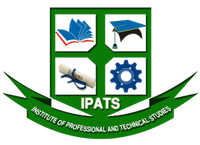Course details
Auto mechanics Campus Based Course Trainings - Automotive service shop procedures
- Mechanical diagnostic techniques
- Gas engine & fuel systems
- Brake systems
- Steering, suspension and tires
- Electrical and electronic systems
- Vehicle service and repair
- Emissions tuning
- Safety and environmental procedures
Engine Service CourseA course in engine repair teaches students about the parts of an engine and their functions, as well as how to assemble and take apart the engine. Students
… + Read MoreCourse details
Auto mechanics Campus Based Course Trainings - Automotive service shop procedures
- Mechanical diagnostic techniques
- Gas engine & fuel systems
- Brake systems
- Steering, suspension and tires
- Electrical and electronic systems
- Vehicle service and repair
- Emissions tuning
- Safety and environmental procedures
Engine Service CourseA course in engine repair teaches students about the parts of an engine and their functions, as well as how to assemble and take apart the engine. Students learn about the different types of engines and how to safely maintain and repair them. Since the engine of an automobile is the most vital part of the car's performance, engine repair courses are often among the first courses taken in auto mechanic training programs.
Brake Service CourseBrake repair courses show students how to diagnose and fix problems in drum brakes and disc rotors. Students also learn about the science behind hydraulics, as well as modern anti-lock brake systems. A brake repair course is a must for any aspiring auto mechanic, which is why most schools offering auto mechanic programs require students to take a brake repair course at or near the beginning of the program.
Electric System CourseAn electric systems course shows the applications of electronics in automobiles, particularly in starting the car, the car battery, the car's internal computer and the other electronic systems that monitor the car's performance. This course is usually taken after courses in engine and brake repair, but is taken early in the program since many automotive problems are due to electrical malfunctions.
Automotive Steering CourseCourses in automotive steering discuss the mechanisms that make a car travel in the driver's intended path. Suspension systems, wheel alignment and the geometry of steering are covered in most automotive steering courses. The placement of an automotive steering course in an auto mechanic training program can vary; however, the precise nature of automotive steering requires a trained eye and is therefore is generally only taught after the first half of the program is complete.
Auto Mechanics Module 1 Introduction to Auto Mechanics
- • The Auto Mechanics Trade Today and Tomorrow
- • Safety First: What You Need to Know on Day One
- • On Overview of Automobile Systems and Their Main Repair and Maintenance Tasks
- • Important Tools and Instruments
- • Practical Exercises
- • Alternative Fuels and Automotive Technologies
Auto Mechanics Module 2 Automotive Technology- • Careers in the Automotive Industry
- • Workplace Skills
- • Basic Theories and Math
- • Automotive Systems
- • Hand Tools and Shop Equipment
- • Diagnostic Equipment and Special Tools
- • Working Safely In the Shop
- • Preventative Maintenance and Basic Services
Auto Mechanics Module 3 Engines- • Automotive Engine Designs and Diagnosis
- • Engine Disassembly and Cleaning
- • Lower End Theory and Service
- • Upper End Theory and Service
- • Engine Sealing and Reassembly
- • Lubricating and Cooling Systems
Auto Mechanics Module 4 Electricity- • Basics of Electrical Systems
- • General Electrical System Diagnostics and Service
- • Batteries: Theory, Diagnosis, and Service
- • Starting and Motor Systems
- • Charging Systems
- • Lighting Systems
- • Instrumentation and Information Displays
- • Basics of Electronics and Computer Systems
- • Electrical Accessories
Auto Mechanics Module 5 Engine Performance- • Engine Performance Systems
- • Detailed Diagnosis and Sensors
- • Ignition Systems
- • Ignition System Diagnosis and Service
- • Gasoline, Diesel and Other Fuels
- • Fuel Delivery Systems
- • Electronic Fuel Injection
- • Fuel Injection System Diagnosis and Service
- • Intake and Exhaust Systems
- • Emission Control Systems
- • Emission Control Diagnosis and Service
- • Hybrid Vehicles
- • Electric Vehicles
Auto Mechanics Module 6 Manual and Automatic Transmissions and Transaxles, Suspension and Steering Systems, Brakes and Passenger Comfort- • Clutches
- • Manual Transmission and Transaxles
- • Manual Transmission and Transaxle Service
- • Drive Axles and Differentials
- • Automatic Transmissions and Transaxles
- • Electronic Automatic Transmissions
- • Automatic Transmission and Transaxle Service
- • Four and All-Wheel Drive
- • Tires and Wheels
- • Suspension and Steering Systems
- • Restraint Systems
- • Wheel Alignment
- • Brake Systems
- • Drum and Disc Brakes
- • Anti-lock Brake, Traction Control, and Stability Control Systems
- • Heating and Air Conditioning
- • Heating and Air Conditioning Diagnosis and Service
Updated on 16 February, 2020 - Read LessAbout Institute of Professional and Technical Studies (IPATS)
IPATS offering professional educational services and trainings in this area. Now days we are trying to enhance our goals for the betterment of our young generation and to improve the quality of education in the field as it our utmost desire to educate the nation rather to teach. Mitsubishi multimedia projectors and audio visual recording systems available to facilitate the distance learning students.
IPATS affiliated with Skill Development Council (SDC), Professional Skill Sciences Council (PSSC), SKills Professional Trade Testing Council (SPTTC) and National Skill Development Council (NSDC) Punjab Board Lahore Ministry of Federal Education and Professional Training, Government of Pakistan.
See all Institute of Professional and Technical Studies (IPATS) courses


